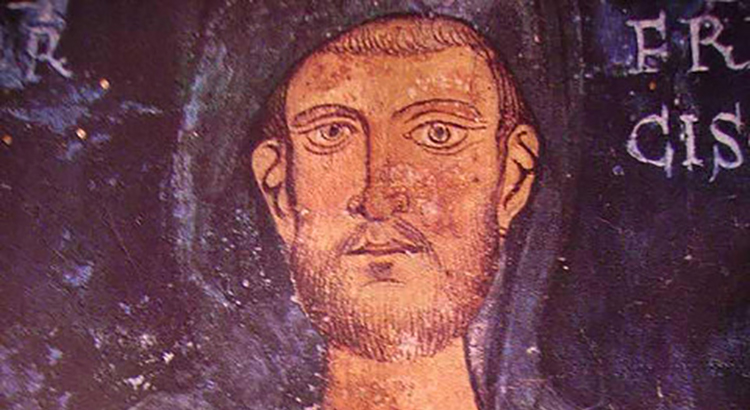Prayer for peace
The prayer for peace is held in the Basilica of Santa Maria in Trastevere.
Reading of the Word of God
Alleluia, alleluia, alleluia
This is the Gospel of the poor,
liberation for the imprisoned,
sight for the blind,
freedom for the oppressed.
Alleluia, alleluia, alleluia
Exodus 14,5-18
When Pharaoh king of Egypt was told that the people had fled, he and his officials changed their attitude towards the people. 'What have we done,' they said, 'allowing Israel to leave our service?' So Pharaoh had his chariot harnessed and set out with his troops, taking six hundred of the best chariots and all the other chariots in Egypt, with officers in each. Yahweh made Pharaoh king of Egypt stubborn, and he gave chase to the Israelites. The Israelites marched confidently away, but the Egyptians, all Pharaoh's horses, his chariots, his horsemen and his army, gave chase and caught up with them where they lay encamped beside the sea near Pi-Hahiroth, facing Baal-Zephon. As Pharaoh approached, the Israelites looked up -- and there were the Egyptians in pursuit of them! The Israelites were terrified and cried out to Yahweh for help. To Moses they said, 'Was it for lack of graves in Egypt, that you had to lead us out to die in the desert? What was the point of bringing us out of Egypt? Did we not tell you as much in Egypt? Leave us alone, we said, we would rather work for the Egyptians! We prefer to work for the Egyptians than to die in the desert!' Moses said to the people, 'Do not be afraid! Stand firm, and you will see what Yahweh will do to rescue you today: the Egyptians you see today you will never see again. Yahweh will do the fighting for you; all you need to do is to keep calm.' Yahweh then said to Moses, 'Why cry out to me? Tell the Israelites to march on. Your part is to raise your staff and stretch out your hand over the sea and divide it, so that the Israelites can walk through the sea on dry ground, while I, for my part, shall make the Egyptians so stubborn that they will follow them, and I shall win glory for myself at the expense of Pharaoh and all his army, chariots and horsemen. And when I have won glory for myself at the expense of Pharaoh and his chariots and horsemen, the Egyptians will know that I am Yahweh.'
Alleluia, alleluia, alleluia
The Son of Man came to serve,
whoever wants to be great
should become servant of all.
Alleluia, alleluia, alleluia
The passage of the Red Sea divides history into before and after. A parallel story will be that of the crossing of the Jordan River (see Josh 1:10-18; Ps 114). The text shows God's strength in the face of Egyptian power. It is the Word of God addressed to Moses that moves events. The people listen to the words of Moses and begin their escape from Egypt by taking the direction that would lead them to Palestine. Pharaoh, angered by both the loss of precious labour and the humiliation that this escape represented, immediately organised a chase to catch the Jews and lead them back to Egypt. The people of Israel, truly small in the face of Egypt's power, upon seeing themselves pursued and almost caught up with the Egyptians, are overcome with fear. And they cry out to the Lord their lament and to Moses their protest. They have lost confidence in the power of God and feel lost at the mercy of the enemy. The way of freedom, the choice of following God is always a struggle and always requires the conversion of one's heart, that is, putting one's trust in God. How often do we give up when faced with the first difficulties! The people, seeing themselves pursued from behind by the Egyptians and in front by the Red Sea, now feel lost. And they lash out at Moses. But the Lord intervenes again: he also rebukes Moses who had allowed himself to be led astray by the cries of the people of Israel and orders that they all resume their journey. The Lord who had brought them out of Egypt would not abandon them. And the text shows God's miraculous intervention. "But you," God says to Moses, "lift up your staff, and stretch out your hand over the sea and divide it, that the Israelites may enter the sea on dry ground. And he alludes to the defeat of the Egyptians: this too would be God's work. What appeared impossible, God would accomplish. And Israel could move towards freedom.
